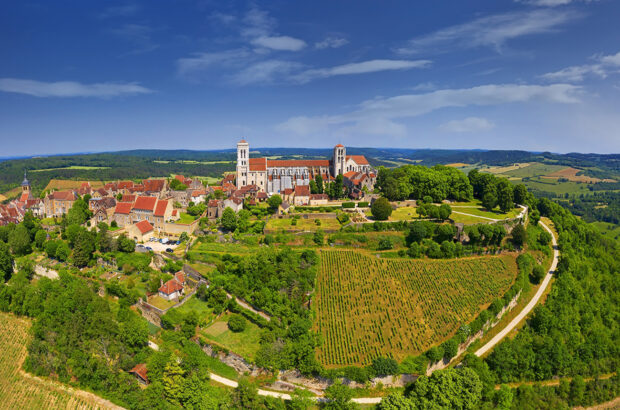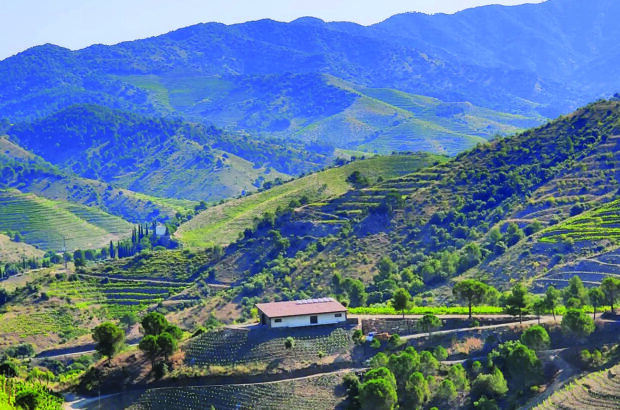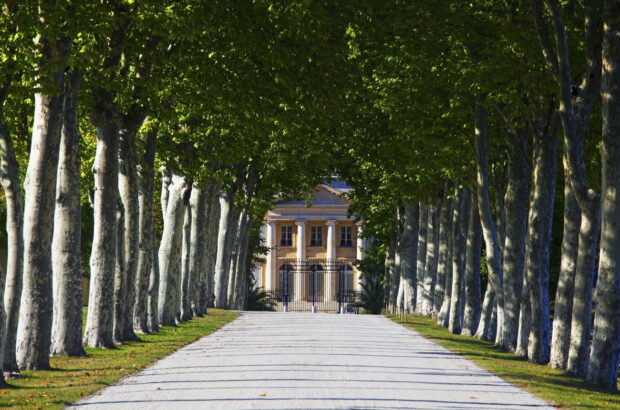The winemakers in Bordeaux always hope for hot weather in August – it makes for a better vintage. Fortunately, the classrooms at the Ecole du Vin of the CIVB (Bordeaux Wine Trade Centre) are air-conditioned. The school is equipped with bright white tables, a light to examine the wine’s robe and a round sink like a dentist’s spit-bowl which rinses automatically when you press the button. When I sat at my tasting booth, I was grateful to see four glasses of water ready poured, but the one I drank had an odd taste. Only when the oenologist-educator had finished describing the region and its wines and began his introduction to tasting, I realised I had made a boob. The glasses weren’t intended to quench our thirst on a warm summer’s day but to illustrate the four basic tastes: sweet, sour, salt, bitter. Sometimes a fifth glass with a tactile sensation is added, important with oak-aged wines: astringency. The distinction was very fine, and it proved a test our sensitivity threshold. But I agreed with the Wine-School slogan: ‘Learning can be fun’.
According to Bruno Delmas, who is in charge of the Ecole du Vin at the CIVB, its objective is ‘to give wine lovers an opportunity to acquire an overall knowledge of wine, help them discover the variety of appellations in Bordeaux and give them all necessary information for a better appreciation of our wines’. The wines are carefully selected specifically for the purpose. A panel of experts choose the one wine which best represents its particular appellation, clearly described on the label. You will be guided in recognising, say, a Pauillac from a Margaux, a Saint-Emilion, or a Graves.
Specific interests
Although the Ecole du Vin in Bordeaux covers all the Bordeaux appellations with a range of wines for every pocketbook, you may have a personal interest in a specific appellation, such as Médoc, Saint-Emilion, Blaye or Sauternes – these run their own short courses for on-the-spot visitors prior to a tour of the vineyards in their area. These short courses, which run from July to mid-September, usually last an hour or two, but when people get interested they tend to run on. They have become highly popular, so you may need to book well in advance. In Blaye, where the Wine Syndicate makes no charge as a promotional effort, courses are limited to 24 by the number of tasting-booths and late-applicants may be disappointed. The Syndicate has a qualified child-nurse for the summer to look after youngsters while parents are tasting.
Vintage guides: Medoc and Graves/
More on the Ecole du Vin
Unlike the summer courses organised in different appellations, the Ecole du Vin is open all year round with a programme of more extended courses in French, English or German in two stages, each consisting of four two-hour sessions. The first stage covers tasting techniques while the second deals in depth with the various aspects of Bordeaux wines. Otherwise, there are two-day or three-day wine weekends, also wine and food weekends, or special customised courses organised for groups of eight persons or more.
The winemakers in Bordeaux always hope for hot weather in August – it makes for a better vintage. Fortunately, the classrooms at the Ecole du Vin of the CIVB (Bordeaux Wine Trade Centre) are air-conditioned. The school is equipped with bright white tables, a light to examine the wine’s robe and a round sink like a dentist’s spit-bowl which rinses automatically when you press the button. When I sat at my tasting booth, I was grateful to see four glasses of water ready poured, but the one I drank had an odd taste. Only when the oenologist-educator had finished describing the region and its wines and began his introduction to tasting, I realised I had made a boob. The glasses weren’t intended to quench our thirst on a warm summer’s day but to illustrate the four basic tastes: sweet, sour, salt, bitter. Sometimes a fifth glass with a tactile sensation is added, important with oak-aged wines: astringency. The distinction was very fine, and it proved a test our sensitivity threshold. But I agreed with the Wine-School slogan: ‘Learning can be fun’.
According to Bruno Delmas, who is in charge of the Ecole du Vin at the CIVB, its objective is ‘to give wine lovers an opportunity to acquire an overall knowledge of wine, help them discover the variety of appellations in Bordeaux and give them all necessary information for a better appreciation of our wines’. The wines are carefully selected specifically for the purpose. A panel of experts choose the one wine which best represents its particular appellation, clearly described on the label. You will be guided in recognising, say, a Pauillac from a Margaux, a Saint-Emilion, or a Graves.
Although the Ecole du Vin in Bordeaux covers all the Bordeaux appellations with a range of wines for every pocketbook, you may have a personal interest in a specific appellation, such as Médoc, Saint-Emilion, Blaye or Sauternes – these run their own short courses for on-the-spot visitors prior to a tour of the vineyards in their area. These short courses, which run from July to mid-September, usually last an hour or two, but when people get interested they tend to run on. They have become highly popular, so you may need to book well in advance. In Blaye, where the Wine Syndicate makes no charge as a promotional effort, courses are limited to 24 by the number of tasting-booths and late-applicants may be disappointed. The Syndicate has a qualified child-nurse for the summer to look after youngsters while parents are tasting.Unlike the summer courses organised in different appellations, the Ecole du Vin is open all year round with a programme of more extended courses in French, English or German in two stages, each consisting of four two-hour sessions. The first stage covers tasting techniques while the second deals in depth with the various aspects of Bordeaux wines. Otherwise, there are two-day or three-day wine weekends, also wine and food weekends, or special customised courses organised for groups of eight persons or more.
Learning how to taste opens the door to the realm of what is known as The Wine Civilisation. The Ecole’s brochure calls its courses ‘the keys to the kingdom’. For more information, check its website











